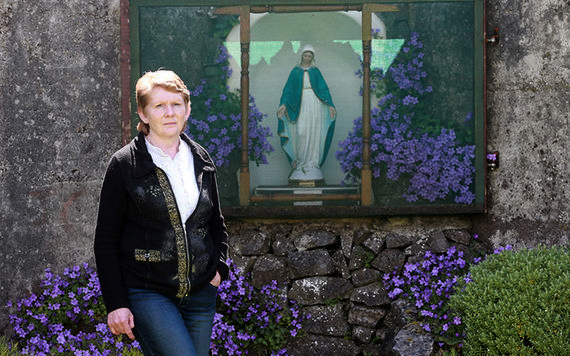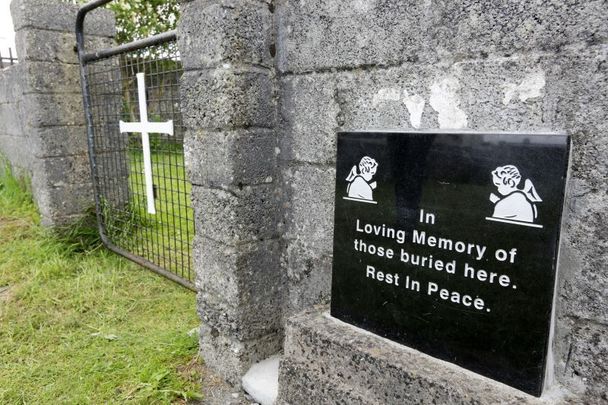The Institutional Burials Bill 2022 completed its final stage in the Houses of the Oireachtas on July 6 and will now be referred to President Michael D. Higgins for his consideration and signature.
The legislation will provide a lawful basis for a full-scale forensic excavation, recovery, and analysis of the children’s remains at the site of the former Mother and Baby Institution in Tuam, Co Galway.
It will enable a DNA-based identification programme to help answer questions affected families may have about their loved ones, and will ensure that the children there are finally granted a dignified burial.
Speaking about the passage of the legislation, the Minister for Children, Equality, Disabilty and Youth, Roderic O'Gorman, said: “The Institutional Burials Bill will allow us, at long last, to afford the children interred in Tuam a dignified and respectful burial. The government has committed to a full-scale forensic excavation of the site and this legislation is essential to delivering on that.
“My sincere hope is that this will finally bring some form of solace and closure to the families and survivors who have been so deeply affected by this abhorrent situation.
“I have met many survivors and family members and I want to thank them for their generosity in sharing their time and for their contribution to the development of this legislation. I would also like to thank Catherine Corless for her tireless work and commitment to the children interred in Tuam.”
? Institutional Burials Bill 2022 passed by Oireachtas.
? https://t.co/75tQZvFEBG pic.twitter.com/JNkIsmKCY3
— Children, Equality, Disability, Integration, Youth (@dcediy) July 7, 2022
Subject to enactment of the legislation, Minister O'Gorman plans to commence it immediately. He will then seek government approval to make an Order under the legislation establishing an Office of the Tuam Director of Authorised Interventions. The draft Order will be laid before both Houses of the Oireachtas. Once approved, the Office of the Tuam Director of Authorised Interventions will be established and a Director will be appointed with a view to starting excavation of the site at Tuam as soon as possible.
In 2014, amateur historian Catherine Corless discovered the mass, unmarked grave of 796 children at the Mother and Baby Home in Tuam, Co Galway. She, along with survivors and victims' families, has campaigned for dignified burials for the victims ever since. When the Bill was introduced earlier this year, Corless described it as "closure."

Catherine Corless at the Tuam site in Co Galway. (RollingNews.ie)
On July 5, the day before the legislation was passed, the Office of the High Commissioner for Human Rights at the Union Nations raised issues concerning rights abuses at Ireland’s Mother and Baby institutions. The issues were raised in the wake of the fifth periodic report of Ireland on how it implements the provisions of the International Covenant on Civil and Political Rights.
A Committee Expert said that a satisfactory mechanism had not been introduced to fight impunity and promote the right to the truth for thousands of victims. Had there been criminal consequences for members of the Catholic Church who had committed rape or other sexual violence? Were criminal investigations ongoing?
Minister O’Gorman told the Committee that the Irish Government had made wide-ranging commitments to addressing the priority needs and concerns of those who had spent time in Ireland's Mother and Baby Homes. These included the Birth Information and Tracing Act of 2022, draft legislation to establish a redress payment scheme, and another draft bill allowing for exhumation, identification, and dignified reburial of the remains of infants at the Tuam burial site. He noted that the Irish Government had also recently approved a national memorial to honor those who had endured institutional trauma.




Comments